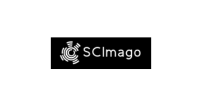HOMEOPATHIC PRODUCT IN DOG DIETS MODULATE BLOOD CELL RESPONSES
DOI:
https://doi.org/10.5380/avs.v24i4.69072Palavras-chave:
immunity, canines, homeopathy.Resumo
Every year, numbers and life expectancies of pets increase, especially for dogs and cats. Pets are exposed to environmental factors such as pollutants, pathogens, and oxidants that hamper the animals’ ability to respond to stressors. Nutrition and hygiene are increasingly important among animal professionals and pet owners. The objective of this study was to evaluate the efficacy of a commercially-available homeopathic herbal product formulated with plants, designed to stimulate canine immunity. We used 10 male dogs (beagles) weighing 5.5–6 kg and 5 months of age. Animals were randomly allocated to Control (C, n = 5) and Treated (T, n = 5) groups. The treated group received a basal diet with an additional dose of 0.5 mL/animal/day homeopathic solution and group C received only the basal diet (300 g/day). The product was supplied for 45 days. The animals were weighed and blood samples collected for complete blood counts and serum biochemistry on days 1, 15, 30 and 45 of the experiment. Higher numbers of lymphocytes were observed in conjunction with lower numbers of neutrophils in the T group on days 30 and 45. Total and neutrophil leukocytes decreased throughout the experiment in both groups, and lymphocytes increased with significant difference only in the T group. Erythrocytes and hematocrit increased in both groups over time, as did glucose, triglycerides, total protein, albumin and urea levels. ALT was higher in the control group on day 45. We conclude that the use of a homeopathic agent stimulated lymphocyte production in healthy dogs; and this suggests that homeopathic use is beneficial, because lymphocytes are directly related to cellular and humoral immune responses. Studies in adult animals and those focusing on infectious challenges may reveal more information about the actions of this homeopathic agent.
Downloads
Publicado
Como Citar
Edição
Seção
Licença
Autores que publicam nesta revista concordam com os seguintes termos:
- Autores mantém os direitos autorais e concedem à revista o direito de primeira publicação, com o trabalho simultaneamente licenciado sob a Creative Commons - Atribuição 4.0 Internacional que permite o compartilhamento do trabalho com reconhecimento da autoria e publicação inicial nesta revista.
- Autores têm autorização para assumir contratos adicionais separadamente, para distribuição não-exclusiva da versão do trabalho publicada nesta revista (ex.: publicar em repositório institucional ou como capítulo de livro), com reconhecimento de autoria e publicação inicial nesta revista.
- Autores têm permissão e são estimulados a publicar e distribuir seu trabalho online (ex.: em repositórios institucionais ou na sua página pessoal) a qualquer ponto antes ou durante o processo editorial, já que isso pode gerar alterações produtivas, bem como aumentar o impacto e a citação do trabalho publicado.













